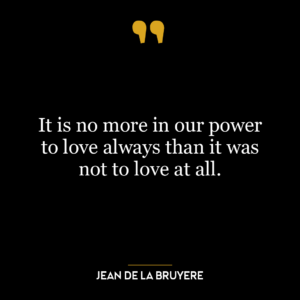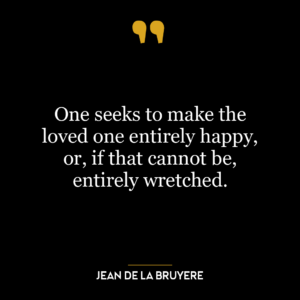This quote suggests that change is a fundamental part of human growth and development. It implies that those who never change fall into two extreme categories: the very wise and the very foolish.
The very wise, as per this quote, are those who have attained such a level of wisdom and understanding that they have found an unchanging truth or way of life that serves them and others well. They have reached a pinnacle of knowledge where change is no longer necessary because they have found an optimal path.
On the other hand, the very foolish are those who are incapable of learning from their mistakes or experiences and hence, they never change. They might be stuck in their ways due to ignorance, stubbornness, or lack of introspection. They don’t change not because they’ve found an optimal path, but because they are incapable or unwilling to adapt and improve.
In the context of personal development or today’s world, this quote can be interpreted as a call for continuous learning and adaptability. In an ever-changing world, being open to change is crucial for growth and survival. Whether it’s adapting to new technologies, learning from our mistakes, or being open to new perspectives, change is often necessary for improvement.
However, this quote also highlights the importance of discerning what changes are beneficial and what are not. Change for the sake of change can lead to instability and confusion. Therefore, it’s important to strive for the wisdom to know what needs to be changed and what needs to be preserved.
In essence, this quote is a reminder that change is a complex phenomenon. It’s neither inherently good nor bad, but a tool that, when used wisely, can lead to growth and improvement.












